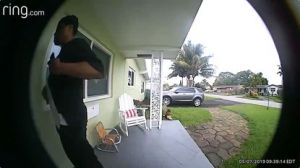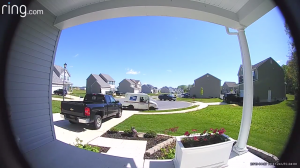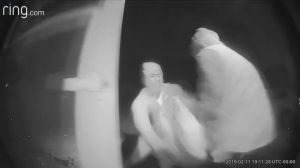
“When it comes to privacy and accountability, people always demand the former for themselves and the latter for everyone else.” – David Brin.
Most doorbells today now have cameras and a lot of them record footage that is stored in a drive or even in cloud storage. A good example is the Ring doorbell, company owned by Amazon. While a Ring doorbell is great for your security, is it also invading your neighbor's privacy?
A doctor in the UK recently won a case and a possible £100,000 pay-out after a judge ruled that a neighbor's Ring doorbell breached her right to privacy.
Most homeowners want to secure their homes from burglars and thieves. As a result, the use of outdoor surveillance camera systems including Ring doorbells is mushrooming around neighborhoods. But sadly, many people do not take their neighbors into consideration when installing high-tech gadgets around their properties.
So, does a Ring doorbell risk other people's privacy, and how? Should there be rules regarding the way your Ring doorbell is installed so it doesn't infringe on your neighbor's privacy?
Can Your Ring Doorbell Invade Other’s Privacy?
While Ring offers end-to-end encryption for its privacy-conscious users, we don't hear much about how Ring protects the privacy of pedestrians and neighbors who happen to come into proximity of a property with a Ring doorbell.
However, we are slowly seeing a spike in the number of complaints filed on social media and other platforms, where people are worried about a possible invasion of their privacy.
As far as the law is concerned, Ring doorbells and outdoor cameras are fair game in public places, but the reality is that they can pose a risk to your neighbor's privacy if not used properly.
Here are some ways a Ring doorbell can invade the privacy of others.
 · Pointing the Camera Towards Your Neighbor’s
· Pointing the Camera Towards Your Neighbor’s
Property
Pointing the Ring doorbell towards your neighbors' properties, backyards, windows, or bathrooms is a complete no-no. It is also illegal in some states to point your doorbell towards your neighbor's property.
But what if you share walkways or yards with your neighbors and there's no way to prevent their property from getting surveilled? The good news is that your Ring doorbell's app comes equipped with an option called "privacy zones". These are easy to set up and do a good job of protecting your neighbor's rights.
· Passing Pedestrians and Children
Taking a simple stroll around your neighborhood or walking your dog should not put you under surveillance. Another big concern for parents is when their kids go door-to-door selling scout cookies or trick or treating on Halloween.
The Ring app automatically sends alerts and alarms when it senses motion within the range of your property but it does little to help protect the privacy of children or pedestrians.
To safeguard their privacy, as a Ring doorbell owner you should always use "motion zones" and configure them through your Ring app. This is especially important for those homeowners who use shared paths with their neighbors.
·  Where can you point the camera?
Where can you point the camera?
Ring’s terms ask users to not point the camera at public roads, but that is just a suggestion.
What does apply are general privacy laws -- which state that people should have a reasonable expectation of privacy. That means you can’t aim the camera at your neighbor’s bathroom or bedroom, but public roads or places visible from the street are fair game.
If illegal activity is caught on camera and police see it, they can use video against the person caught on camera.
· Audio Streaming and Recording
Audio streaming and recording are enabled by default for the Ring doorbell. But what that actually means is that every single time somebody walks past your doorbell camera, it starts off the recording, will decipher what they are saying, and then will record all of it for storage in the Ring cloud.
Snooping in on your neighbor's private conversations is certainly an invasion of their privacy. To prevent this from happening, you could simply disable audio streaming and recording of your Ring doorbell.
The law in Wisconsin says you can't record audio without consent from at least one person involved in the conversation. That means if you speak to someone at your door through the app, you're allowed to share that recording.
 · The Privacy vs. Security Debate
· The Privacy vs. Security Debate
Drawing a line between privacy and security is not always easy. While the Federal law in the United States forbids people from installing recording devices in private areas such as a locker room, there are no stringent legalities in place for homeowners wishing to install smart doorbells on their properties.
However, in the wake of growing criticism and legal debates, Amazon recently issued a statement saying:
“We strongly encourage our customers to respect their neighbors’ privacy and comply with any applicable laws when using their Ring product.”
As a Ring doorbell owner, there will be times when you might end up recording something that falls under the gray zone of legality. But as long as your doorbell is in plain sight, is installed correctly, and not pointing at your neighbor's property, you should have little to worry about.
If you have questions about privacy or any other legal issue contact us today to set up a free consultation. Please contact us by text or phone at (414) 775-7445 or email at laura@jlfwisconsin.com anytime.
*Any articles in the Libra or posted by Jones Law Firm LLC are not legal advice for a particular client or situation. Further no attorney-client relationship is intended or created with this post.*

